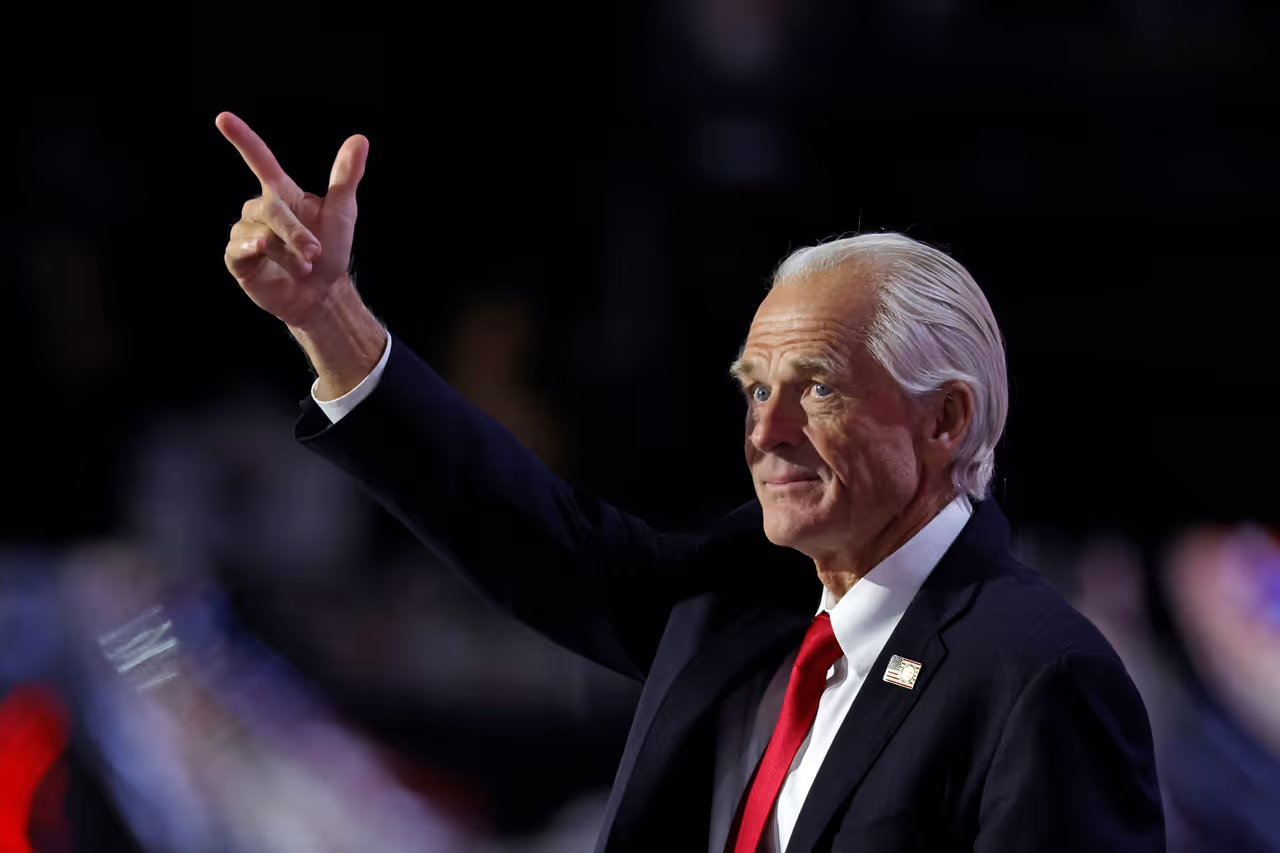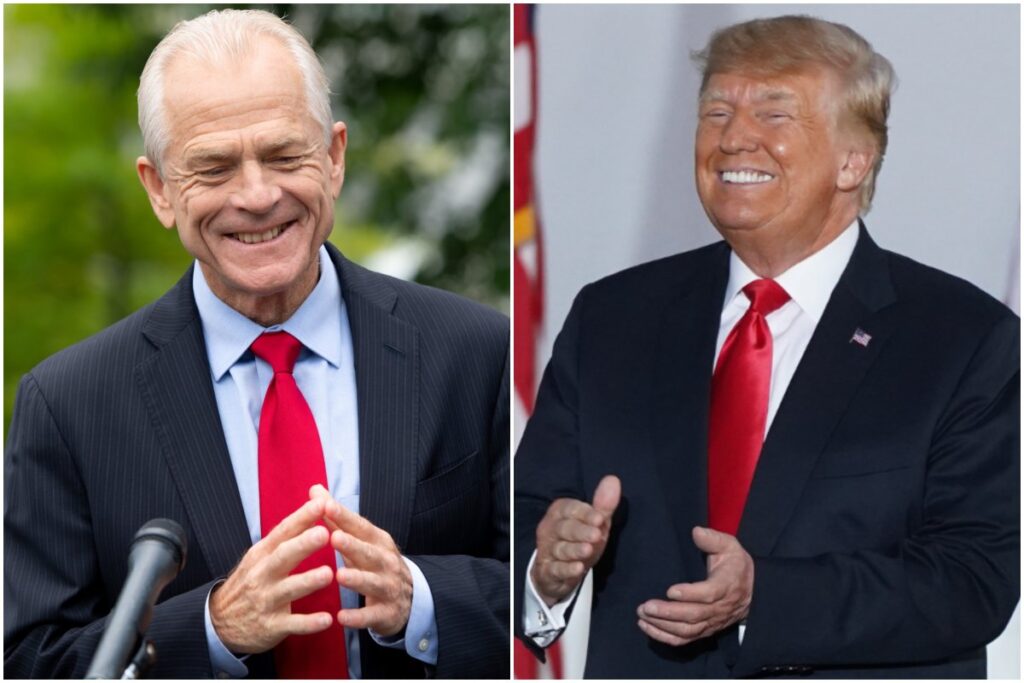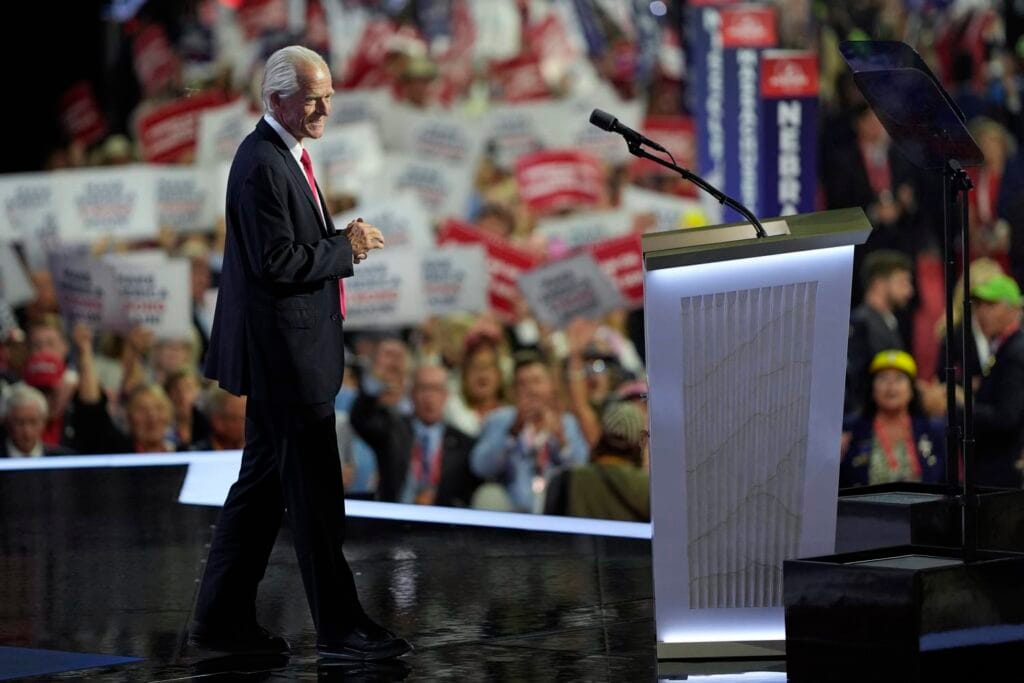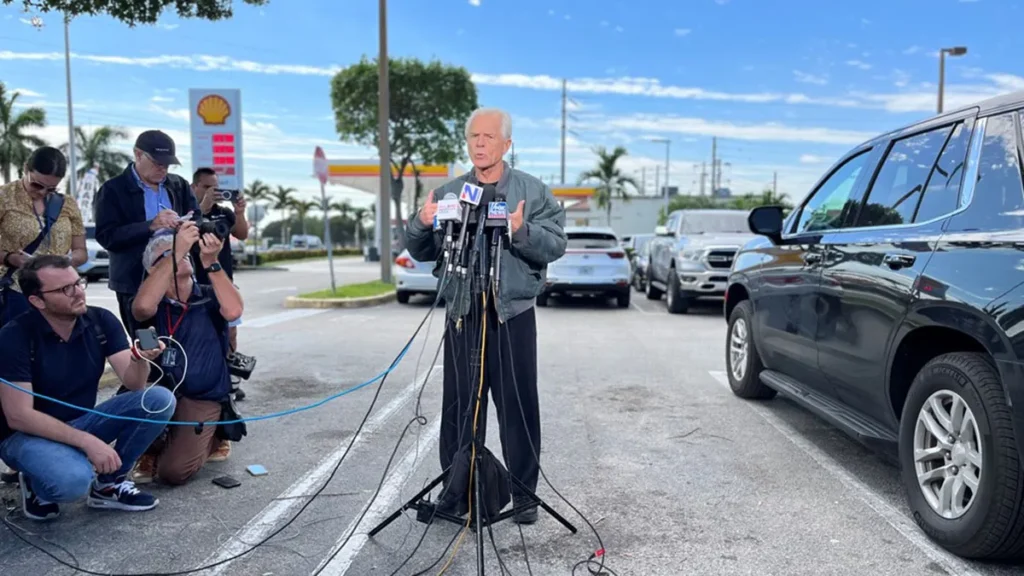
Peter Navarro: From Trump’s Advisor to Contempt of Congress Conviction
Peter Navarro, a former advisor to President Donald Trump, has made headlines not only for his role in the Trump administration but also due to his legal battles surrounding the January 6, 2021 Capitol riot. As one of the prominent figures involved in advising Trump during the tumultuous period leading up to and following the riot, Navarro’s name became synonymous with the political controversy surrounding the event. His defiance of a subpoena related to the investigation of the January 6 events eventually led to his conviction for contempt of Congress.
In this article, we will explore Peter Navarro’s controversial career, the charges against him, the legal proceedings that led to his imprisonment, his eventual release, and the broader implications of his actions on American politics.
Peter Navarro’s Role in the Trump Administration

Peter Navarro was one of the key figures in Donald Trump’s inner circle during the president’s time in office. Appointed as the director of the Office of Trade and Manufacturing Policy, Navarro was a staunch advocate for Trump’s trade wars, particularly with China. He became known for his hardline stance on trade issues, promoting the concept of “economic nationalism.”
Navarro also played a central role in Trump’s 2020 re-election campaign, positioning himself as a fierce supporter of the president’s “America First” policy. He pushed narratives about election fraud and made numerous public statements questioning the legitimacy of the 2020 presidential election results. His actions and rhetoric, particularly in the aftermath of the election, would later become critical in his legal troubles. Politico, The New York Times
The January 6 Capitol Riot and Navarro’s Involvement

The January 6th Capitol riot was a defining moment in American politics. Thousands of Trump supporters stormed the U.S. Capitol, seeking to overturn the results of the 2020 election and disrupt the certification of Joe Biden’s victory. Many high-ranking Trump officials, including Navarro, were accused of playing roles in egging on the insurrection.
Navarro, along with other Trump advisors, worked closely with individuals like Rudy Giuliani and Steve Bannon, who were leading efforts to contest the election results. Navarro promoted claims of widespread voter fraud and was a vocal advocate for attempts to overturn the results, such as pressing for alternative slates of electors. His actions on January 6 and his involvement in the campaign to reject the election results have been a major focal point of investigations into the riot. U.S. Capitol Police
The Contempt of Congress Charges
In the wake of the Capitol riot, the U.S. House of Representatives established a bipartisan select committee to investigate the events leading up to and during the attack. As part of this investigation, Navarro was subpoenaed to testify and provide documents that could help uncover the full extent of the Trump administration’s involvement in the insurrection. However, Navarro refused to comply with the subpoena, citing executive privilege and claims of political persecution.
Navarro’s refusal to cooperate with the committee led to contempt of Congress charges. The committee and the Justice Department argued that Navarro had no legal basis for ignoring the subpoena and that his actions undermined the investigation. In November 2022, Navarro was indicted on two counts of contempt of Congress: one for refusing to testify and the other for failing to provide documents.
Navarro’s Legal Proceedings and Conviction
The legal proceedings against Peter Navarro moved quickly once the contempt charges were filed. Despite his vocal defense of his actions, which included framing the case as part of a broader political attack on conservatives, Navarro was found guilty of contempt. He had insisted that the January 6 investigation was politically motivated and that the charges against him were a direct result of his allegiance to Trump.
In September 2023, a federal judge sentenced Navarro to four months in prison for his refusal to cooperate with the investigation. During the trial, Navarro’s defense focused on the claim that he was protected by executive privilege as an advisor to the president, but the court rejected this argument. U.S. District Judge Mehta, who oversaw the case, emphasized that Navarro’s conduct undermined the principle of congressional oversight. CNN
Navarro’s Time in Prison and Release

Navarro, 75 years old at the time of his sentencing, served his prison term at a federal facility in Miami. Despite his public protestations and appeals, Navarro’s attempts to delay his prison sentence were unsuccessful. The U.S. Supreme Court denied his appeal for early release, and he was required to serve the full four months.
On December 4, 2024, Navarro was released from prison after completing his sentence. His release came after several months of public and legal battles, during which he continued to claim that the charges against him were politically motivated and aimed at silencing conservative voices. Throughout his imprisonment, Navarro maintained his public profile, making statements that positioned him as a martyr for his political beliefs.
The Broader Political Implications
Navarro’s case has far-reaching implications for American politics. His defiance of Congress and the legal consequences that followed serve as a warning to other individuals who may consider resisting subpoenas or obstructing official investigations. The January 6 committee and subsequent legal proceedings have set important precedents for the accountability of government officials and those involved in attempts to undermine democratic processes.
Moreover, Navarro’s actions reflect the growing partisan divide in U.S. politics. His vocal defense of Trump and his criticisms of the Biden administration resonated with a significant segment of the conservative base, but his conviction also highlighted the tension between political loyalty and legal obligations. For many, Navarro’s sentence was seen as a victory for the rule of law, while his supporters viewed it as an overreach by a government determined to target Trump’s allies.
Conclusion: A Divisive Figure in Modern Politics
Peter Navarro’s journey from a key advisor to Trump to a convicted criminal for contempt of Congress is emblematic of the turbulent and polarizing nature of U.S. politics in the 21st century. His refusal to testify before the January 6 committee and his eventual conviction underscore the deepening political divisions in America, where figures like Navarro are seen either as defenders of conservative principles or as obstacles to justice and accountability.
As Navarro’s legal battles continue to unfold, his case will likely remain a point of contention in discussions about the Trump administration, the January 6th insurrection, and the ongoing struggle over the future of American democracy.
Frequently Asked Questions:
- Why was Peter Navarro convicted of contempt of Congress?
Navarro was convicted for refusing to testify and provide documents to the House Select Committee investigating the January 6 Capitol riot, despite being subpoenaed. - What did Peter Navarro do during the January 6 Capitol riot?
Navarro was involved in promoting false claims of voter fraud and advocated for attempts to overturn the results of the 2020 presidential election. - What was Peter Navarro’s sentence?
He was sentenced to four months in prison for contempt of Congress after refusing to comply with a subpoena related to the January 6 investigation. - Did Navarro appeal the charges?
Navarro appealed his conviction, but his request for early release was denied by the U.S. Supreme Court. - How long did Peter Navarro serve in prison?
Navarro served a four-month sentence at a federal facility in Miami before being released in December 2024. - What are the implications of Navarro’s conviction for other Trump allies?
Navarro’s conviction serves as a warning to other Trump allies about the legal consequences of obstructing investigations and defying subpoenas from Congress.
Do follow for more news: DailyForesight



